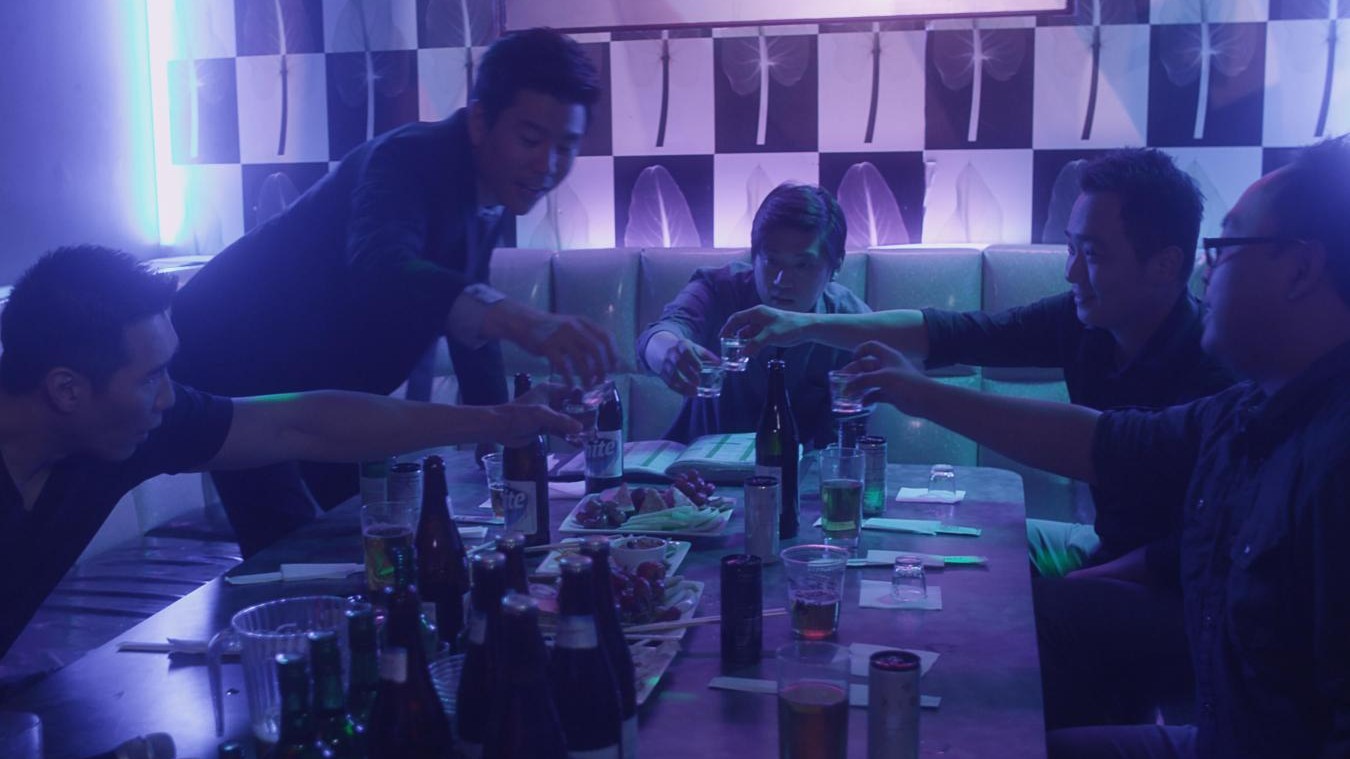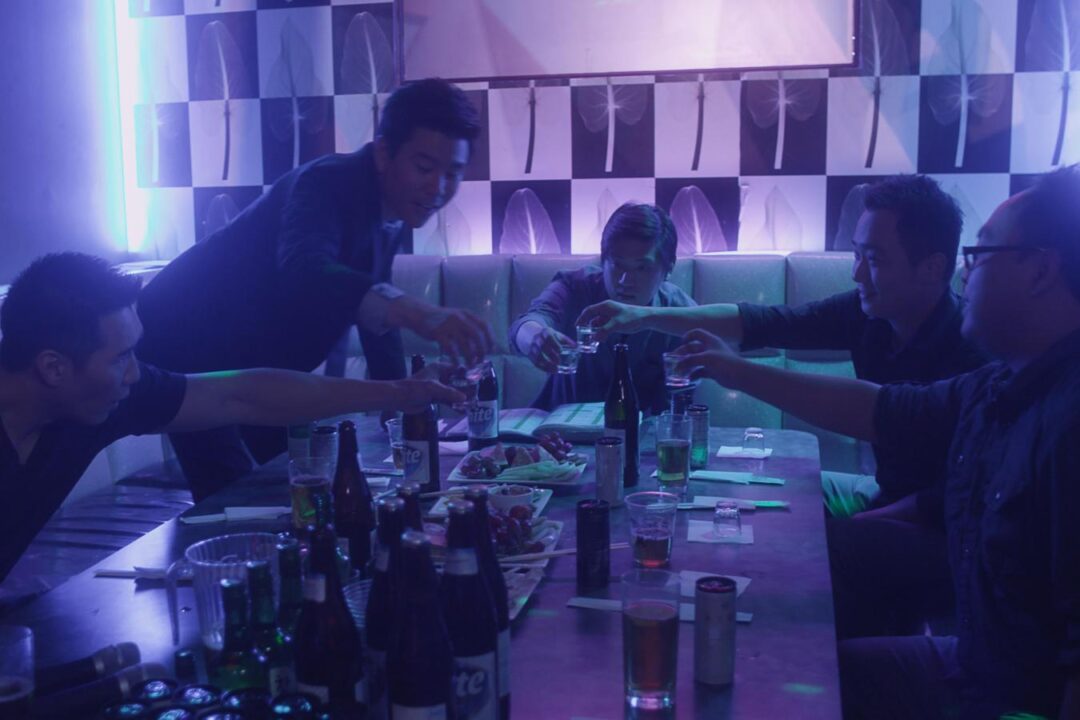It’s clear from the first few minutes that, based on its style, the 2015 SXSW comedy Ktown Cowboys gets its roots from the web series format. We’re introduced to five protagonists, a series of 20-something Korean-American men who are best friends that come together and party regularly in Koreatown (a neighborhood in Los Angeles) to get away from their hectic lives. As one character comically puts it, “We get together and discuss our problems, kind of like AA, except with alcohol.” Each character represents a different facet of the Korean-American first-generation experience in a humorous manner.
The style feels so comfortably short-form at first, one wonders if this is a natural fit for a full-length movie. Fortunately, the dynamic between the variety of characters and a few overarching plot points that develop make the story work as a movie, but most of all, the film succeeds because it is fun. By jabbing the Korean stereotypes while also embracing them, these Cowboys feel as authentic as any film protagonists. At times, Peter (Peter Jae) is a little too one-dimensional, and stand-up comedian character Danny (Danny Cho) never gets fully developed (or just doesn’t have enough lines), but the overall sync is something that works, and by the end we have five distinct personas that we’ve laughed with and enjoyed their company.
The film occasionally breaks the fourth wall (similar to The Big Short) to introduce us to various Korean terminology (slang and serious) which presumably is pulled from the web series and, in this case, gives the film a distinct identity. What makes this work so well is once the term is introduced (example: “Oppa” is what a girl calls an older brother figure) we hear it get used throughout the remainder of the runtime, and begin to connect with the characters from the inside. That and a series of well-placed jokes help us feel like we’re buddies with the characters at the end simply by viewing their film. Well-placed minor roles and cameos by well-known actors Ken Jeong (also executive producer), Daniel Dae Kim (aka Jin from Lost), and Eric Roberts (the guy who’s in 500+ movies) add a layer of credibility and production value to the end result.
A fair criticism stems from the film’s female characters: none are developed at all and the closest we get falls into the biggest Korean stereotype onscreen. While of course the film is all about the bromance between the ensemble, this detractor weakens the authenticity that Ktown Cowboys is so exceptional at. For any film that is debunking stereotypes (even comedy), it should be regarded with extra attention that it isn’t continuing any.
Overall, Ktown Cowboys has such a fun set of characters that I would gladly watch more adventures of this motley crew, and that is perhaps the best compliment one can ask for. In the aftermath of Chris Rock’s Oscars perpetuating Asian stereotypes, and their extreme lack of visibility in American cinema, this is a prime example of how within one culture so many stories can be told, so many actors can thrive, and many fun times can be had.
‘Ktown Cowboys’ opens this Friday, March 18th, at CGV Cinemas in Los Angeles and on VOD March 25th.
H. Nelson Tracey
Nelson is a film director and editor from Denver based in Los Angeles. In addition to writing for Cinemacy, he has worked on multiple high profile documentaries and curates the YouTube channel "Hint of Film." You can check out more of his work at his website, hnelsontracey.com


